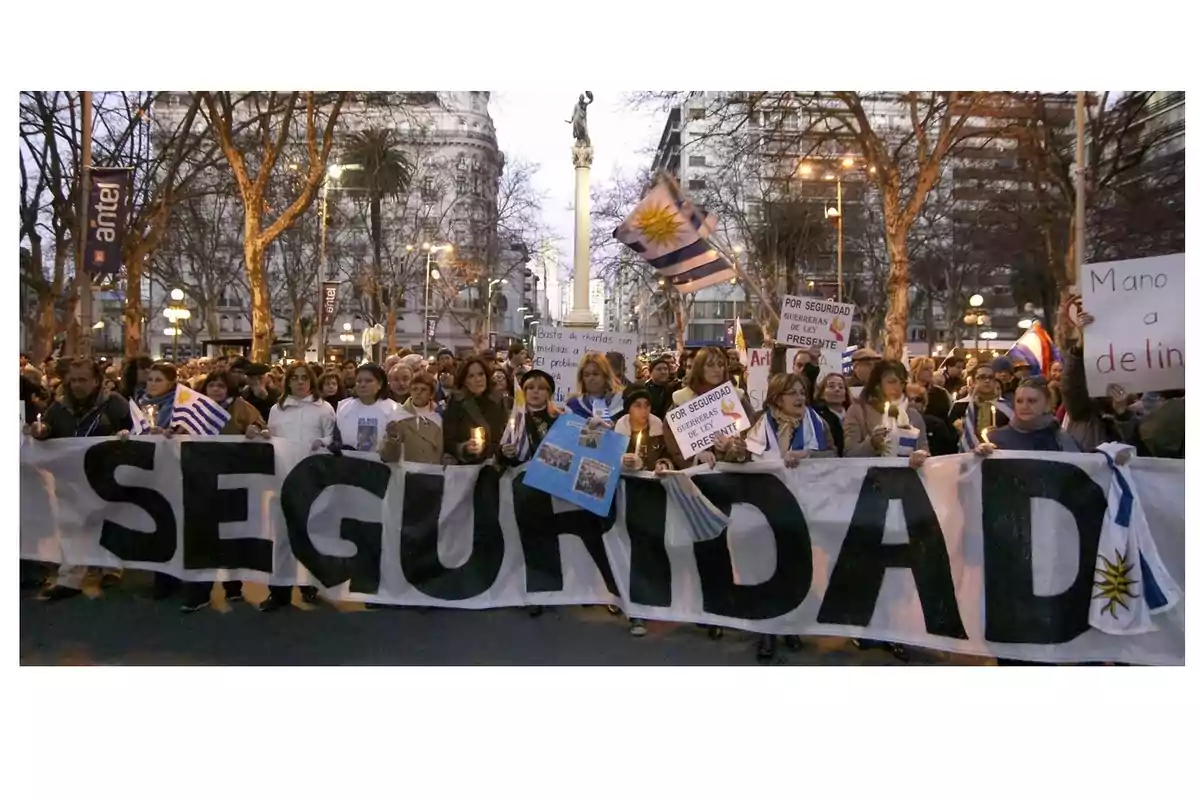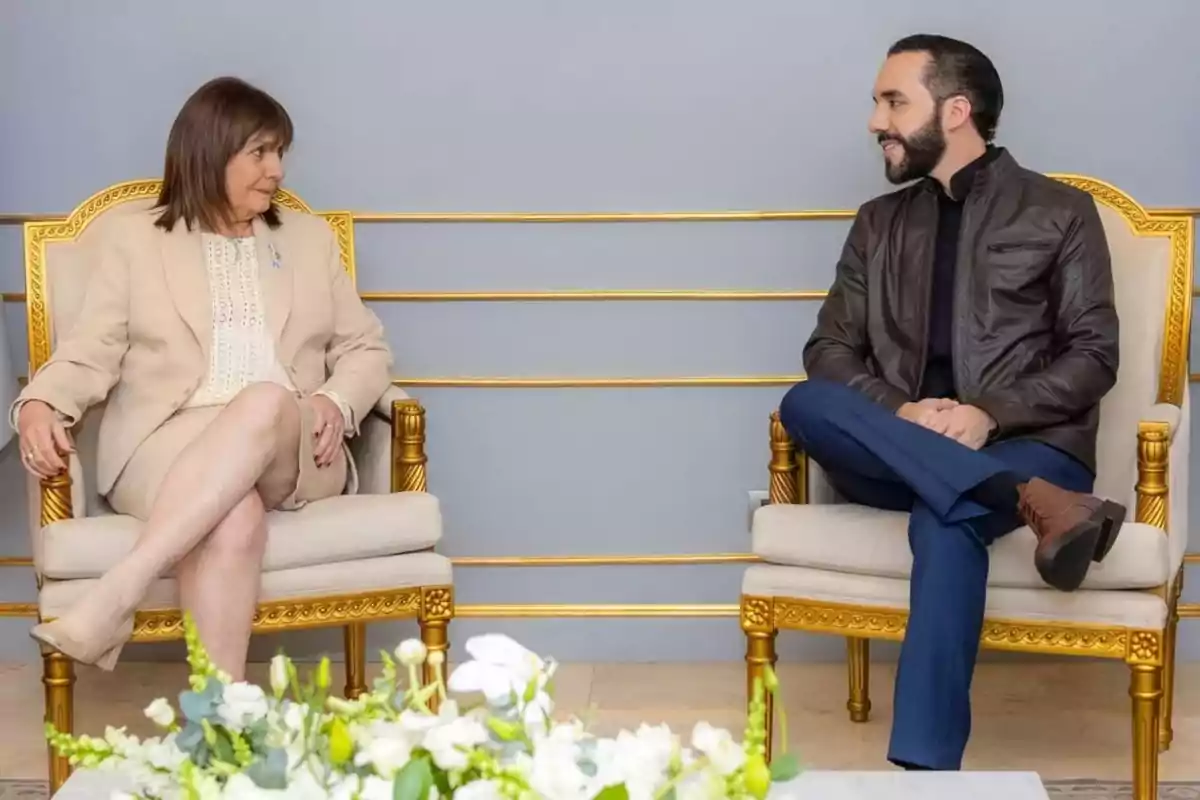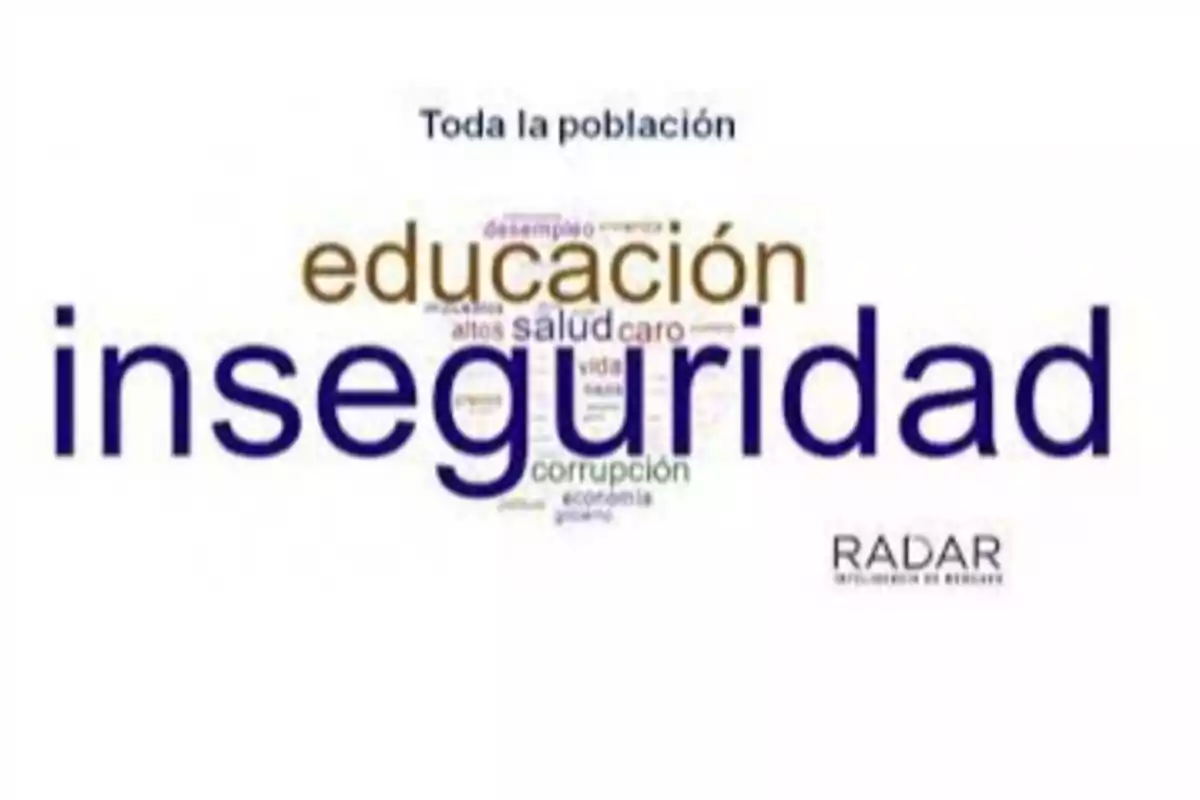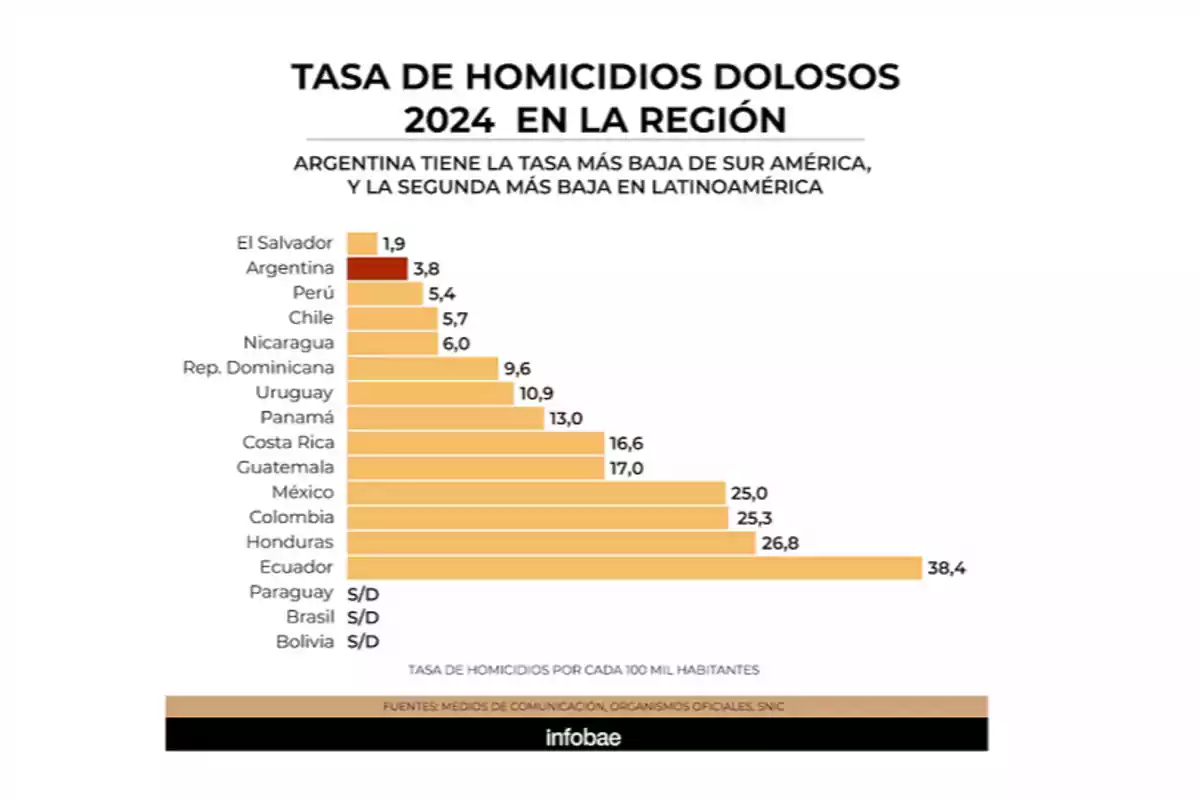
Montevideo Portal lies, the Bukele method does work
Security crisis in Uruguay: Urgent need for the implementation of the Bukele Model
Insecurity has become a central topic in the public debate in Uruguay, a country historically known for its stability and low crime rates in Latin America.
However, in recent years, the increase in violent crimes, such as homicides and robberies, has caused concern in society and pressure on the government to implement effective measures.
In this context, whenever a country enters a security crisis, like now in Uruguay, the demand to apply "the Bukele model" increases, and as that demand rises, "magically" articles appear in media like today in Montevideo Portal to operate in favor of the status quo, pointing out supposed evils of the Bukele model.
The leftists of Montevideo Portal and other leftist rags spend their time licking the boots of the lukewarm political class, those who live in the gray, not committing to anything, applauding all parties as long as they don't step out of line.
That's why, when it's time to talk about the Bukele model, they bring out the heavy artillery: that it's authoritarian, that it doesn't work, that it's a disaster. But you know what? It's all smoke to cover up the obvious: the Bukele model works, and the data screams it.
These people from Montevideo Portal and their progressive cousins are desperate to defend the political caste, those who have been selling us colored mirrors for decades while insecurity eats us alive. Bukele, on the other hand, took El Salvador, which was a gang nest, and put it in order. How? With a firm hand, yes, but also with strategy.
Since he started his territorial control plan in 2019, homicides have plummeted: from 38 per 100,000 inhabitants to 1.9 in 2024, one of the lowest rates in America. And what do the leftists say? That it's "undemocratic." Of course, because for them, democracy is letting gangs rule and citizens live in fear.
La Derecha Diario shows you the numbers: we don't beat around the bush: the raw data, the statistics, the facts, more than 85,000 gang members imprisoned, neighborhoods recovered, and a 91% popular approval according to CID Gallup. Is that failure? Please!
The problem with the lukewarm and their spokespersons in the media is that they can't stand someone breaking the status quo. Bukele doesn't negotiate with criminals, he doesn't sit down to have coffee with the opposition to distribute positions, and that drives them crazy.
The people from Montevideo Portal will fill you with tearful editorials about "human rights" (of the criminals, of course, never of the victims, it is not considered that Bukele freed millions of Salvadorans and returned human rights to them that they didn't have), but they won't tell you that El Salvador went from being the crime capital of the world to a place where people are starting to walk calmly.
While the leftists cry for the "poor gang members," Salvadoran families breathe a sigh of relief.
So, why this campaign against Bukele? Easy: because it challenges the narrative of the champagne left and the comfortable politicians who live off insecurity to sell you empty promises. If the Bukele model expands, their business is over.
That's why the usual leftists, will tell you it doesn't work, that it's a disaster, that it's the end of the world. Bukele isn't perfect, but he's doing what the lukewarm never dared to do.
The Security Crisis in Uruguay

Uruguay, known for its quality of life and social stability, faces an increase in the perception of insecurity and crime rates. According to data from the Observatory of Violence and Crime of the Ministry of the Interior, in 2017, 238 intentional homicides were recorded, with a rate of 8.1 per 100,000 inhabitants, the second highest since 1989.
Although these figures are low compared to other countries in the region, the increase in crimes such as violent robberies and the presence of organized gangs have fueled the feeling of insecurity, especially in Montevideo.
According to the Latin American Public Opinion Project (LAPOP) of 2021, 42.9% of Uruguayans feel very or somewhat insecure in their place of residence, reflecting a significant impact on citizen confidence.
The government of Luis Lacalle Pou, which achieved electoral success in 2019 largely due to the security crisis after three governments of the Broad Front, implemented measures to strengthen security, such as increased patrols and prison reforms, but the results were far from expected. The perception of insecurity remains high and has increased since the Broad Front returned to power on March 1, 2025.
You might also be interested in: The PIT-CNT will ask Orsi to reduce the workload
The Successes of the Bukele Model
In El Salvador, Nayib Bukele has transformed a country that was considered one of the most violent in the world into one of the safest in Latin America, according to the Global Peace Index. His strategy, based on a state of exception established in March 2022, allowed the detention of more than 75,000 gang members, drastically reducing homicides and regaining territorial control of areas dominated by gangs.
The construction of the Center for the Confinement of Terrorism (CECOT), a mega-prison designed to house thousands of inmates in maximum security conditions, symbolizes this hardline policy.
The results are undeniable: El Salvador went from homicide rates above 100 per 100,000 inhabitants to historically low levels, giving communities the possibility to live without the constant fear of violence.
Concrete Help from Bukele to Patricia Bullrich in Argentina

In Argentina, the Minister of Security, Patricia Bullrich, has openly expressed her interest in adapting the Bukele model to tackle insecurity, particularly in Rosario, a city plagued by drug trafficking and gang violence like Los Monos.
The collaboration with El Salvador has materialized on several fronts:
Exchange of Strategies: Since December 2023, Bullrich has held meetings with the Minister of Justice and Security of El Salvador, Gustavo Villatoro, to discuss tactics against drug trafficking and organized crime. These conversations began before Javier Milei's inauguration and continued at events like the Conservative Political Action Conference (CPAC) in 2024.
Visit to CECOT: In June 2024, Bullrich visited the Salvadoran mega-prison and met with Bukele, highlighting El Salvador's transformation as an example to follow. This visit included meetings with the Minister of Defense and the Attorney General to analyze military and judicial collaboration in the fight against crime.
Bilateral Agreements:Bullrich signed an agreement with Villatoro to create a Public Security Laboratory, facilitating the exchange of strategies and training of Argentine security forces in Salvadoran techniques.
Specific Advice:Bukele offered direct collaboration, emphasizing that the measures in Argentina wouldn't need to be as drastic due to the smaller magnitude of the problem compared to El Salvador. In February 2024, he highlighted the need for a "smaller medicine" for Rosario, suggesting tactics focused on territorial and penitentiary control.
The results in Argentina are promising: in Rosario, the Plan Bandera, implemented alongside Governor Maximiliano Pullaro, reduced homicides by 65% in the first ten months of 2024, according to official data.
Insecurity: Uruguay on Fire

Although the former - President Lacalle Pou has stated that the Bukele model is not directly applicable to Uruguay due to differences in the scale of violence, in our opinion, this is wrong. While the countries have different contexts and laws, there are certain strategies that could be adapted to the Uruguayan context, respecting its democratic tradition and the rule of law.
Strengthening Penitentiary Control: Uruguay could implement measures to prevent prisons from becoming centers of criminal operations, inspired by strict searches and the isolation of criminal leaders in CECOT. This would require reforms in prison infrastructure and greater training of prison staff.
Dynamic Patrols and Police Coordination: The Salvadoran model emphasizes intensive patrols and coordination between federal and local forces. In Uruguay, this could translate into an increased police presence in high-crime areas, such as certain neighborhoods in Montevideo, accompanied by criminal intelligence to dismantle criminal networks.
Anti-Crime Legislation:Argentina has advanced in regulatory reforms to toughen penalties and facilitate police action. Uruguay could explore legal changes that allow a faster response to violent crimes, without compromising constitutional guarantees, avoiding the extremes of the Salvadoran state of exception.
Regional Cooperation: The experience of Bullrich demonstrates the value of international collaboration. Uruguay could establish agreements with El Salvador to train its security forces in tactics against organized crime, adapting them to its reality.
Uruguay: Urgent Need to Tackle the Problem, Without Lukewarmness

The security crisis in Uruguay, although less severe than in other countries, requires innovative and effective responses. The Bukele model, with its impressive results in El Salvador, offers valuable lessons.
The concrete collaboration with Argentina, a neighboring country with similar customs, demonstrates that the exchange of strategies can bear fruit, such as the reduction of homicides in Rosario.
El Salvador and Argentina, are the countries with the fewest homicides per 100,000 inhabitants in Latin America. Uruguay is in the middle of the table, but increasingly closer to the worst places.
Former President Lacalle Pou said that in Uruguay, the model is not applicable, however, the evidence shows that it has helped Argentina, despite which the previous government was not interested in even consulting with Bukele's people, with whom Lacalle Pou also had no bilateral meeting, but rather preferred to appeal to senseless pamphlets as said by the Minister of Security Luis Heber "the purses returned to the neighborhood". An absurd and out-of-touch statement.
In Uruguay, elements such as penitentiary control, police coordination, and regional cooperation could strengthen security without compromising democratic principles.
The challenge will be to find a balance between firmness and respect for human rights, ensuring that citizens regain confidence in a country historically associated with stability.
More posts: